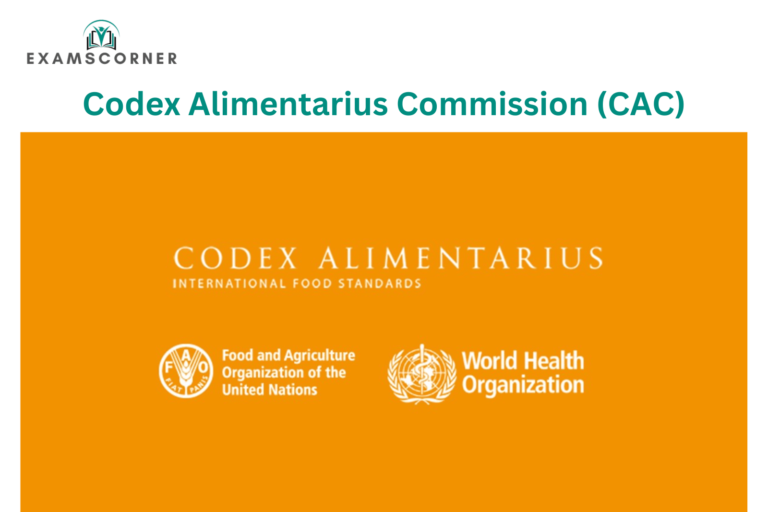The Codex Alimentarius Commission (CAC) is an international food standards body established jointly by the Food and Agriculture Organization (FAO) and the World Health Organization (WHO). It plays a pivotal role in ensuring global food safety, fair trade practices, and the protection of consumer health.
Why is the Codex Alimentarius Commission in News? (as of April 2021)
The fifth session of the Codex Committee on Spices and Culinary Herbs (CCSCH) commenced on April 20, 2021. This session included a series of virtual meetings held until April 29, 2021, with nearly 300 experts from 50 countries participating in deliberations. The CCSCH was established under the Codex Alimentarius Commission to develop global standards for spices and culinary herbs.
Codex Alimentarius Commission – A Brief Background
- Establishment: May 1963.
- Management: Jointly managed by WHO and FAO.
- Membership:
- 189 Codex Members: 188 Member Countries and 1 Member Organization (European Union).
- India became a member in 1964.
- Membership is open to all FAO and WHO Member Nations and Associate Members interested in international food standards.
- Meeting Locations: Alternates between Geneva and Rome.
- Languages: Arabic, Chinese, English, French, Russian, and Spanish.
- Budget: Jointly managed by WHO and FAO.
What is the Codex Alimentarius?
The Codex Alimentarius is a comprehensive collection of international food standards adopted by the Codex Alimentarius Commission. These standards cover all main food types, whether processed, semi-processed, or raw. Key areas include:
- Hygienic and nutritional quality of food.
- Microbiological norms.
- Food additives.
- Pesticide and veterinary drug residues.
- Contaminants.
- Labelling and presentation.
- Methods of sampling and risk analysis.
Objectives of the Codex Alimentarius Commission
The Codex Alimentarius Commission’s official mandate is to implement the Joint FAO/WHO Food Standards Programme with the following objectives:
- Protect Consumer Health: Ensure food safety and protect consumer health.
- Fair Trade Practices: Promote equitable practices in food trade.
- Coordination: Harmonize food standards work undertaken by international governmental and non-governmental organizations.
- Standards Development:
- Determine priorities and guide the preparation of draft standards.
- Finalize and publish standards either as regional or worldwide standards.
- Amendment of Standards: Update published standards in line with developments.
CODEX Committees
The Commission’s work is supported by its Executive Committee (CCEXEC) and subsidiary bodies. India, as the Regional Coordinator for the FAO/WHO Regional Coordinating Committee for Asia (CCASIA), is a member of the CCEXEC.
Subsidiary Bodies:
- Committees: Prepare draft standards for submission to the Commission.
- General Subject Committees.
- Commodity-specific Committees.
- Coordinating Committees: Facilitate food standards activities regionally. Six Codex regions:
- Africa: Kenya.
- Asia: India.
- Europe: Netherlands.
- Latin America and the Caribbean: Chile.
- North America and South-West Pacific: Vanuatu.
- Near East: Iran.
- Task Forces: Ad hoc intergovernmental task forces established for limited terms with specific objectives.
Codex Standards
Codex standards are categorized as general, specific, or regional and are recognized by WTO Agreements as reference standards.
- General Standards, Guidelines, and Codes of Practice:
- Address hygienic practices, labelling, contaminants, additives, inspection, certification, nutrition, and residues of veterinary drugs and pesticides.
- Apply horizontally to various products and product categories.
- Commodity Standards:
- Developed for specific food products or food groups.
- Regional Standards:
- Standards developed by respective Regional Coordinating Committees applicable within specific regions.
Conclusion
The Codex Alimentarius Commission is instrumental in shaping global food safety and trade practices. By fostering collaboration among nations and setting international standards, the CAC safeguards consumer health and ensures fairness in the global food trade. India’s active participation, particularly as a regional coordinator for Asia, highlights its commitment to strengthening food safety and international cooperation.



